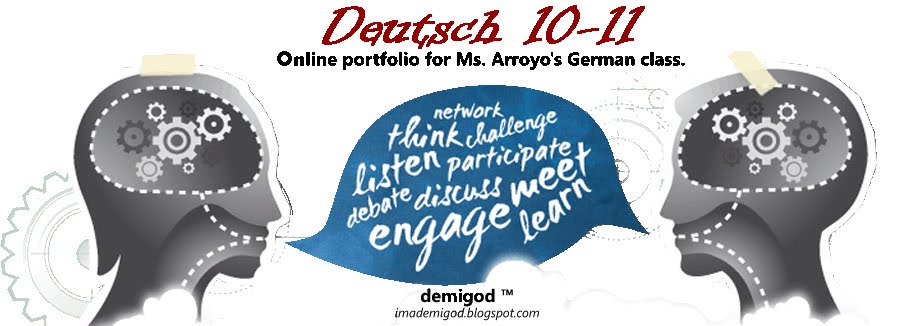Landeskunde:
Seit dem 01.01.2002 ist der Euro (€) gemeinsames offizielles Zahlungsmittel in 13 Landern der Europäischen Union (EU): in Belgien, Deutschland, Finnland, Frankreich, Griechenland, die Niederlande, Irland, Italien, Luxemburg, Österreich, Portugal, Slowakei und Spanien. Über 200 Millionen Menschen bezahlen mit dem Euro. Die Euroscheine sind in allen Ländern gleich, die Münzen sind unterschiedlich und tragen nationale Symbole der Länder.
(Seite 23 auf Kursbuch).
✎ My personal wordbank:
Since we have started knowing the German names of some countries, I added some more to the list:
Since we have started knowing the German names of some countries, I added some more to the list:
Argentinien
Belgien
China
Dänemark
Deutschland
den Niederlanden
die Philippinen
die Türkei
England
Finnland
Frankreich
Griechenland
Irland
Italien
Indien
Japan
Kasachstan
Lettland
Luxemburg
Malaysia
Norwegen
Österreich
Polen
Portugal
Russland
Slowakei
Spanien
Thailand
USA 

